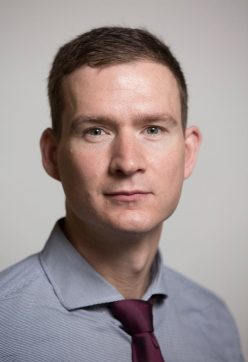Demographic and social pathways of educational reproduction: A cross-national study
The project is funded by the German Research Foundation (DFG) and combines traditional retrospective models with more recent prospective models into an integrative model of educational reproduction. The project’s models considers the social reproduction of education as a social attribute and the demographic reproduction of populations carrying this attribute. Examined will be the role of various demographic pathways: union formation and homogamy, union (in)stability and repartering, fertility timing and quantum. To combine retrospective and prospective approaches, we introduce a method that substantially reduces the data requirements of prospective models. The method allows estimating prospective models based on retrospective data commonly available in surveys. It addresses two key issues – retrospective sampling bias and the problem of identifying representative cohorts. The method also allows disentangling social and demographic pathways of reproduction. The proposed research will leverage this method to examine educational reproduction prospectively using national and cross-nationally comparative data (GGS, SHARE, ISSP, ESS, SOEP, FFS). The project aims advance our understanding of social inequality and its reproduction in families.
Preschool and migration-related educational inequality in Ireland
The project entitled ‘Can preschool reduce migrant gaps? A longitudinal study of migration-related disparities in educational opportunities and the role of early childhood education’ is funded by the Irish Research Council (IRC). I am PI of the project which provides funding for a PhD Scholarship (Stefanie Sprong) from the Department of Children and Youth Affairs Growing Up in Ireland. The project employs longitudinal research designs, quasi-experimental methods, and demographic micro-simulation techniques to analyse the degree to which expanding preschool education may foster educational inclusion of migration children in Ireland.
Research Handbook on Digital Sociology
On behalf of Edward Elgar Publishing, I am editing the new ‘Research handbook on Digital Sociology’. The handbook aspires to be a leading reference on digital sociology and social science research in the digital era. To this end, the book aims to bring together ground-breaking contributions from renowned scholars of various academic disciplines working at the frontier of research on digitalisation and society. The handbook will comes in the form of an edited volume and has been published in March 2023. It is part of Edward Elgar’s book series Research Handbooks in Sociology. Find the book here!
Previously
ISOTIS – Inclusive Education and Social Support to Tackle Inequalities in Society
ISOTIS is a collaborative project funded by the European Union (H2020 scheme), that includes 17 partners and 11 countries. In the project I am leading Work Package 1 – Inequality in Educational Careers. I am local PI at the Trinity College Dublin. Pioneering in Europe, the work package combines recent and high-quality longitudinal data from various countries in an innovative comparative and longitudinal design. Findings from this research reach out to both academia and the public discourse by contributing significant insights into emergence, development and persistence of educational inequality as children are growing up and navigating through school.
See more on http://www.isotis.org
The Late Divide: Gender and the Division of Labor in Older Couples
This project pursued a comprehensive longitudinal investigation of the division of labor in older couples. Informed by life course perspectives as well as established theories of the division of labor, the project focused on two critical life transitions in older age – grandparenthood and retirement –, which represent turning points that may instigate processes of adaptation and renegotiation of the previous division of labor in older couples. Project research traced older couples over extended periods of time to explore how, why, and under which conditions grandparenthood and retirement affect their arrangements of market and domestic work. The analyses drew on comprehensive longitudinal data from the German Socio-Economic Panel Study (SOEP) as well as other longitudinal datasets.
The project was funded by the German Research Foundation (DFG) and located at the State Institute for Family Research at the University of Bamberg (Germany).
eduLIFE – Education as a Lifelong Process: Comparing Educational Trajectories in Modern Societies
The eduLIFE project analysed the educational career over the life course in four phases covering early childhood education, secondary and tertiary education, the transition from school to work, and adult learning. A number of country studies are conducted within each of these phases in collaboration with country experts and using high-quality longitudinal data. Based on cross-national comparisons, eduLIFE aims to establish the generality of findings as well as the impact of institutional contexts.
The project was funded by the European Research Council and led by Hans-Peter Blossfeld (PI) at the European University Institute (EUI) in Florence. I was working on the project team from 2013 to 2016 as post-doctoral senior researcher. Next to conducting own research on the topics, my main responsibilities were coordinating a network of international academic collaborators and editing and publishing volumes documenting the project’s findings. Together with colleagues, I co-edited and published three comparative volumes (Gender, Education and Employment, Models of Secondary Education and Social Inequality, and Childcare, Early Education, and Social Inequality).
The Internet as a Partner Market: Analyzing the Early Phase of Meeting and Mating using Data from Online Dating
The project was funded by the German Research Foundation and ran from 2011 to 2013 at the University of Bamberg (PI Hans-Peter Blossfeld). See details here.
Processes of Mate Choice in Online Dating
The project was funded by the German Research Foundation and ran from 2007 to 2010 at the University of Bamberg (PI Hans-Peter Blossfeld). See details here.
